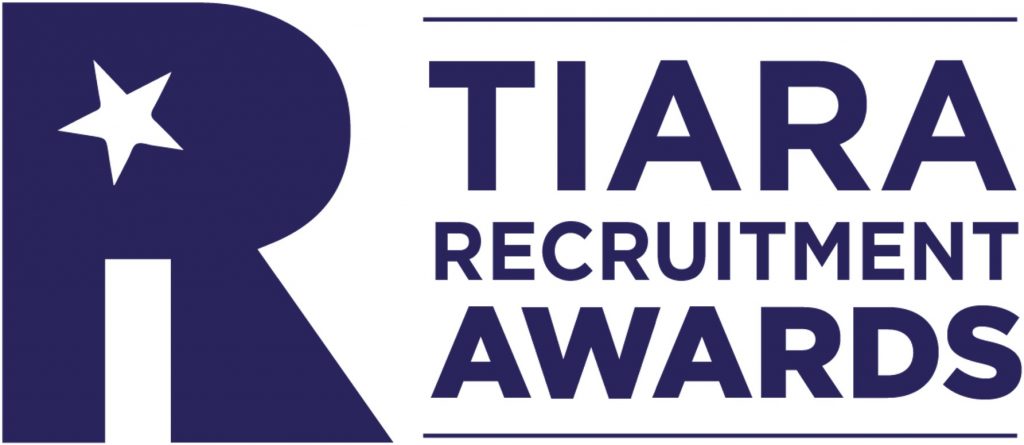
Access Strategic Hiring Solutions With an Expert Talent Acquisition Company
Nothing matters more than the people who power your organization, so why settle for anyone but the best?
Envision is an award-winning recruitment process outsourcing (RPO) provider specializing in sourcing and hiring highly skilled talent across the global market. Our strategic recruitment services enable growth for your company by providing innovative solutions to meet your business’s long-term goals.
Flexible Talent Acquisition Services From Envision RPO
Envision offers flexible, scalable talent acquisition solutions customized to your hiring needs. We embed ourselves within your corporate culture, acting as a seamless extension of your organization. Our talent acquisition and RPO experts work with you to understand your company’s strategic priorities and hiring needs, analyze the labor market, and find the right talent for your team. Discover our comprehensive recruitment process outsourcing services:

Global Talent Acquisition Company Services
Envision RPO is a TIARA award-winning service provider of multilingual recruitment outsourcing solutions. Our flexible talent acquisition solutions adapt to your organization’s hiring needs through a combination of market analysis, technical excellence, and proven methodologies.
Project & On-Demand RPO
provides flexible RPO solutions for short-term recruitment needs, enabling your organization’s growth.
End-to-End RPO
covers the entire hiring process, from sourcing and screening candidates to assessing, and interviewing.
Talent Acquisition Consulting Services
help you find the most qualified candidates to fill niche, executive, and high-volume positions while driving down agency fees.
THE RPO ADVANTAGE
The RPO model is all about finding the right talent for your hiring needs.
Outsourcing your recruitment process to a trusted talent acquisition partner like Envision brings huge benefits to your company, such as:

Exceptional Talent
Envision specializes in delivering outstanding candidates to our clients by working with talent acquisition teams to proactively create a talent pipeline before you need to fill a position.

Faster Time-to-Fill
As a leading RPO service provider, Envision has the resources and industry experience to quickly fill your positions with quality employees. From sourcing candidates to talent assessment, interviewing, and making an offer, our experts support every aspect of your talent strategy.

Improved Scalability
Envision’s RPO talent solutions allow you to hire confidently as you scale your recruiting initiatives up or down — without altering internal talent acquisition teams.

Employer Branding
Envision can position your company as an employer brand of choice for top-tier candidates, enabling you to attract the talent you need.
OUR BLOG
Explore the Latest Insights From Envision
Learn from the RPO experts and stay up-to-date on the latest talent acquisition trends. Our digital library of articles contains in-depth industry knowledge, advice, and information to align your recruitment efforts with today’s talent landscape.
Recommended
Talent & Market Insights
Article
How To Measure Diversity: Metrics, Methods, and Meaningful Insights
December 29, 2025
Organizational diversity, equity, and inclusion (DEI) is becoming increasingly critical — and complicated — as time goes on. Demonstrably diverse representation, the kind that shows up in the numbers and employee sentiment, acts as a pillar that upholds a business’s employer brand, value proposition, workplace culture, and talent attraction and retention frameworks. More to the point, companies with high DEI scores are 39% more likely to financially outperform those without. However, businesses must know how to track and measure diversity to demonstrate it. This article explores which inclusion metrics to focus on and how to track them. What Are DEI Metrics? There’s no single way to fully quantify diversity indicators, and the components of DEI all carry different implications in the workplace. Diversity looks at the representation of different backgrounds and identities within an organization. Metrics such as candidate hiring rates, representation in senior leadership, and average tenure per cohort matter here. Equity refers to the fairness and consistency of opportunities and support across employees. It’s measured through qualitative and quantitative factors like management check-ins, burnout ratios, compensation equity, and the outcomes of succession planning. Inclusion is the degree to which employees feel valued and able to contribute fully. Organizations can measure inclusion using internal mobility rates, engagement scores, and patterns of engagement. Belonging is a more recent addition to DEI, and covers whether employees feel meaningfully connected to the company and/or their roles. It can be measured through participation in well-being programs or workplace networks, as well as access to stretch assignments. When measuring diversity, businesses must contextualize real-world numbers and translate them into meaningful data. This inherently includes gathering quantitative data, such as: Race and ethnicity. Age and generation. Gender and gender identity. Sexual orientation. Religious and spiritual beliefs. Disability — including physiological disorders, neurodivergence, etc. It can also refer to qualitative data, such as employee sentiment, engagement, and lived experience. Notably, diversity metrics run deeper than the headcount. For instance, they can refer to accessibility and inclusion for those facing mental health challenges, which can arise regardless of any of the above indicators. In this light, an organization’s comprehensive DEI efforts, which show up as much in representation as they do remuneration and policies, are among the most impactful talent acquisition strategies: They benefit everyone. How To Measure DEIB Collect quantitative data across the following DEI metrics to uncover the pathway to a more diverse workforce. Here are some numbers to track: Demographics across organizational levels: Measure different demographic groups’ representation across levels and roles. Retention across employee groups: Audit retention and attrition rates for diverse employees. Candidate demographics and selection rates: Collect data around diverse candidates in recruitment pipelines. Employee advancement and promotion rates: Analyze internal progression across each demographic group. Equitable compensation: Ensure diverse candidates are equitably rewarded for the same or similar-effort roles. Representation (compared with the community): Quantify how closely internal representation accurately reflects diversity within the wider community. Employee engagement: Track engagement across different groups. Following the data collection phase, any sign of underrepresented groups may indicate unconscious bias within an organization and a need to rebalance DEI efforts to curate a more inclusive workplace culture. Furthermore, even if the numbers look good, DEI needs to be felt among employees for it to have a genuine impact. By running an organization-wide employee survey, focus groups, or onboarding and exit interviews, companies can gather valuable insights around inclusivity and belonging sentiment. Deriving Meaningful Insights From Qualitative and Quantitative DEIB Measurement Here’s how companies can focus on impactful inclusion initiatives, data, and insights based on the current state of inclusive culture. Assess diversity within the organization: Look at both the numbers and the lived experience to understand where representation, access to opportunities, and sentiment realistically stand. Identify what matters most to handle first: Prioritize the gaps that create the most friction for employees, rather than trying to fix everything at once. Set goals: Create objectives and ensure they’re specific, time-bound, and tied to real behavioral or structural change. Track progress: Revisit the same metrics and signals over time to see whether actions are tangibly shifting outcomes. Understanding the right questions to ask and which metrics to track is the first step to measuring diversity. However, collating data into meaningful insights and then transforming them into actionable processes is far from straightforward. Recruitment specialists like Envision RPO integrate within your organization’s talent acquisition function to analyze diversity metrics and clarify the type and scale of initiative that generates genuine DEI progress.For expert insights and support in raising DEI standards to strengthen your diversity and representation, talk to experts.
Talent & Market Insights
Article
Pay Equity Analysis: Ensuring Fair and Compliant Compensation Practices
December 8, 2025
Pay equity is moving into the foreground of organizational talent strategies. Fair compensation practices demonstrate that a company holds its pay structure to a consistent, justifiable standard. People want to know they’ll be rewarded fairly for their work, and they’re increasingly willing to walk if they suspect otherwise. Fair compensation also reinforces a business’s cultural integrity and strengthens employee trust. At the same time, it reduces exposure to legal and regulatory risk. To build a more equitable compensation framework, talent functions must grasp what pay equity actually is and how it differs from the commonly conflated concept of pay equality. This article will set the foundation for building a mature, replicable pay equity framework and outline the pathway to fair compensation policies. What Is Pay Equity? Pay equity and pay equality are often used interchangeably, but they’re not the same. Mistaking one for the other creates blind spots that can lead to unfair compensation practices — even when the intention is good. Pay equity means providing the same pay for jobs that require comparable skills, responsibilities, effort, and working conditions. Two roles don’t have to be identical to receive comparable compensation — they need to require a similar degree of contribution. Pay equality is more straightforward. It’s offering the same pay for the same job, regardless of demographic characteristics. That means a company should pay two employees in the same role equally, unless legitimate factors can explain the difference. To conduct a strong pay equity analysis, HR teams must first align on a few foundational concepts: Equal Work This applies to employees in the same role or performing nearly identical tasks. The comparison point is job similarity, not title. If responsibilities overlap significantly, evaluate these roles together. Equally Valued Work Different roles may require different tasks, yet still demand equal levels of skill, responsibility, and effort. For example, two employees in different departments may contribute in distinct ways, but the organization might determine that the total role demands are equivalent. In a pay equity analysis, these roles belong in the same comparison group. Unjustifiable Pay Disparity Pay differences must be tied to clear, justifiable factors, including skill level, job difficulty, tenure, performance, or relevant experience. If the only remaining explanation for a compensation gap is, say, demographic, that gap is unjustifiable and likely points to a systemic issue. Internal Pay Equity Internal pay equity covers the factors that influence a pay structure from within the company, including: Role expectations. Experience requirements. Performance levels. Career trajectory. Organizations should ensure the internal structure makes sense before comparing it with market norms. External Pay Equity External pay equity addresses whether a company’s pay practices are fair and competitive relative to the market. It considers the likes of: Industry norms. Company size and headcount. Regional or market compensation data. Competitor salary ranges across roles and levels. When external pay equity is aligned with market expectations, offers become more competitive, driving higher acceptance rates and long-term retention. Why Does Pay Equity Matter? Pay equity holds more weight among HR and talent functions than it used to. What was once a compliance exercise is now a pillar in talent attraction, retention, and performance. Employees still care about what they receive. But they also want to understand why they receive that amount, how their employer made those decisions, and whether those decisions are consistent. Therefore, pay equity paints a picture of whether a company’s HR practices are credible. When compensation decisions follow a clear framework, organizations build trust with the workforce. Below is a breakdown of the five operational benefits of pay equity. 1. Legal Compliance Regulatory expectations around pay transparency and equal pay are expanding — and legislation like the Equal Pay Act (EPA) is only the beginning. Australia recently banned pay secrecy clauses in contracts, and in late 2025, multiple U.S. states introduced pay transparency laws. Organizations must be able to explain pay variances using objective criteria and maintain auditable records of compensation data to stay on the right side of compliance. It’s also a good idea to consistently define job structures, pay bands and role scopes across departments. 2. Talent Management If employees notice that compensation decisions appear inconsistent or subjective, it can impact engagement and morale. Organizations risk reduced internal mobility and increased turnover in teams where inequity is perceived — even if the actual pay gap is small. In this sense, demonstrating a commitment to pay equity may be more important than the numbers themselves. On the flipside, demonstrating equitable compensation policies can be a huge drawcard during recruitment. 3. Risk Mitigation Unfair pay practices create a multitude of issues if they’re not intentionally identified and mitigated. To reduce exposure to risk — financial, legal, talent, reputation, or otherwise — organizations should conduct pay equity analyses to detect pay gaps early and identify structural problems, then resolve them. 4. Diversity, Equity, and Inclusion (DEI) and Workforce Insights Pay equity data is a powerful tool for HR teams because it can reveal insidious DEI patterns that other analyses may miss. A thorough audit can help a business gain insight into: Departments that tend to offer salaries beyond the standard range. Mobility pathways that feed imbalances. Negotiation practices that favor certain groups. Whether new hires enter above or below base salary standards. Talent acquisition leaders can use these insights to identify blind spots and operationalize DEI efforts. 5. Employer Brand Talent acquisition trends show that candidates increasingly review salary rates online — and that employees are inclined to share their experiences on review platforms. Companies with fair and transparent compensation practices stand out, improving candidate acceptance rates and earning greater employee trust. Here, pay equity becomes a strategic, visible signal to the market that a business manages its workforce responsibly and sustainably. To reap these benefits and execute equitable compensation practices organization-wide, the best place to start is with a pay equity analysis. Step-by-Step Guide To Conducting a Pay Equity Analysis A pay equity analysis is an X-ray of your compensation system. It shows where pay decisions are sound, reveals any structural issues and uncovers the pathway toward fair pay practices and long-term workforce design. Below is a practical framework to run a pay equity analysis that stands up to scrutiny and helps fix imbalances. 1. Define the Why Before diving into the data, establish goals, KPIs and real workforce questions — these will guide the process and outcomes of the pay equity analysis. Common goals include: Understanding how many pay gaps are explainable vs. genuinely problematic. Mapping representation across role clusters and leadership pathways. Identifying whether underrepresented groups face higher turnover. Comparing the internal comp structure to the external market. Once the direction is set, the rest of the analysis follows a straight line. 2. Establish What Counts as “Equal” and “Equally Valued” Work This stage provides the framework for the analysis. Think of it as defining the building blocks that make up a workforce. If two jobs look similar on paper but differ in accountability or scope, this is an opportunity to identify any disparity and clarify expectations at all levels. This stage involves: Standardizing job families. Cleaning up role descriptions. Clarifying required skills, effort, accountability, and working conditions. Dated job descriptions and inconsistent leveling practices are often the root cause of pay gaps. This phase makes them much easier to identify. 3. Collect the Full Dataset A credible analysis looks beyond pay data alone to build a 360-degree view of compensation practices. Depending on the goals set earlier, a company may collect data regarding: Base salary, bonuses, and allowances. Additional benefits that affect total compensation. Tenure and relevant prior experience. Performance history. Job levels, titles, and grouping data. Demographics, such as age, gender, and ethnicity. Educational and professional qualifications. External market benchmarks. A complete dataset helps separate existing practices from genuine bias. However, keep in mind that even established practices that look good on paper will need addressing if they lead to pay discrimination. 4. Compare Roles Across Job Families Once the data is categorized, start clustering employees based on the work they perform. This stage gives a comprehensive view of internal pay positioning, revealing outliers and inconsistent decisions. It also shows whether any inequities have emerged from recruitment or internal mobility, for instance, evolving market rates, one-off negotiations and legacy titles. 5. Apply Statistical Methods To Reveal What’s Real Statistical tools collate and present data in ways that demonstrate both justifiable and illegitimate pay variations. Then it’s easier to translate the data into a story and, where necessary, determine a practical remediation pathway. Common methods include: Regression analysis to identify which variables influence pay decisions. Cohort comparisons to understand how similar roles and salaries compare across demographics and teams. Distribution curves to identify outliers or trends. 6. Identify and Address Gaps Once the analysis reveals disparities, organizations must focus on remediation. Depending on outcomes, actions may include: Adjusting salaries upwards to achieve pay equity Reviewing and adjusting incumbent pay. Standardizing leveling across teams. Redesigning benchmarks for performance reviews. Increasing transparency around how the organization makes compensation decisions. The goal is to build a system that consistently and predictably produces equitable decisions. The more clearly defined the expectations, criteria, and decision pathways are, the less likely it is that inequities will show up in the future. Achieve Greater Pay Equity With Envision RPO Pay equity is an ongoing effort that strengthens how an organization manages fair compensation for employees at all levels. When businesses consistently make data-backed compensation decisions, they can strengthen trust and stay competitive in the labor market, while reducing organizational risk. If you want a compensation framework that’s fair, defensible, and built to scale, it’s worth bringing in the experts. Partner with the specialists at Envision RPO and create an equitable pay structure that supports your talent function over the long term.
Talent & Market Insights
Article
Envision RPO Recognized as a Major Contender in Everest Group’s 2025 Recruitment Process Outsourcing (RPO) Services PEAK Matrix® Assessment for Asia Pacific
December 8, 2025
Tokyo, Japan – October 27, 2025 – Envision Co., Ltd. today announced that it has been recognized as a Major Contender in the Everest Group Recruitment Process Outsourcing (RPO) Services PEAK Matrix® Assessment 2025 – Asia Pacific. This marks the first time Envision has been featured in Everest Group’s influential assessment of RPO providers across the region. The PEAK Matrix® is one of the industry’s most trusted frameworks for evaluating service providers based on their market impact and vision and capability. Each year, Everest Group assesses RPO providers across key dimensions such as delivery footprint, client portfolio, innovation, and value delivered. “We are honored to be recognized as a Major Contender in this year’s PEAK Matrix® Assessment,” said Naoyuki Sekiguchi, Representative Director of Envision Co., Ltd. “Our focus has always been on Japan—one of the world’s most complex and competitive talent markets. Being recognized in an Asia Pacific–wide evaluation highlights the impact of our Japan-specialized RPO model and the dedication of our team in delivering high-quality, localized recruitment solutions for global clients.” Founded in 2014, Envision RPO provides recruitment process outsourcing solutions that combine the agility of a boutique firm with enterprise-grade delivery capability. With deep expertise in Japan’s recruitment landscape, Envision supports multinational clients across technology, consulting, and consumer sectors to design and execute tailored talent acquisition programs. The Everest Group PEAK Matrix® Assessment 2025 – Asia Pacific evaluates leading RPO providers to help enterprises make informed sourcing decisions based on objective, data-driven insights. To learn more about the report, please visit the Everest Group report page. About Envision RPO Envision Co., Ltd. (Envision RPO) is a Japan-based Recruitment Process Outsourcing (RPO) firm helping global organizations hire exceptional talent across the Asia Pacific region. With a primary focus on Japan and a deep understanding of its unique market dynamics, Envision empowers companies to build strong, diverse teams that drive sustainable growth. Learn more at www.envisionrpo.com. Citation Everest Group (2025). “Recruitment Process Outsourcing (RPO) Services PEAK Matrix® Assessment 2025 – Asia Pacific.”
Enhance Your Recruiting Process With Envision
At Envision, we provide clients with a customized talent acquisition strategy and solution that aligns with their unique hiring needs. Our experts specialize in discovering top-tier, multilingual talent for global organizations. When you partner with us, our consultants act as an extension of your team, allowing us to better represent your organization in the labor market and provide value far beyond talent sourcing.
We use recruitment metrics to drive data-backed solutions that work, balancing hard data with a human-centric approach that puts people at the core of every decision.
Envision Is Recognized as the No. 1 Award-Winning RPO Service
Envision RPO was recently named the Best Workforce Solutions Recruitment Company of the Year in the TALiNT International Annual Recruitment Awards. This award acknowledges the best of the best in the RPO industry, demonstrating our commitment to our clients and dedication to driving a successful talent strategy.


Create the Change You Want to See
Looking to join the Envision team? Our organization is guided by innovation, integrity, and collaboration. We create positive change in the world through substantial and sustainable recruitment process improvements. Are you ready to unlock your full potential with one of the best global talent acquisition firms?

WHAT PEOPLE ARE SAYING
Envision integrates seamlessly with our regional team and acts as a true extension of our talent acquisition function… It has been a pleasure dealing with Envision, and I would highly recommend them.
Talent Acquisition Director
Global Fortune 500 Company


Let’s Talk Talent Solutions
Are you looking for the right talent to suit your hiring needs? At Envision, our talent acquisition professionals are eager to work with you. We live and breathe your company culture to align seamlessly with your organization, its stakeholders, and members, acting as an extension of your talent acquisition team. Talk to an expert today and learn how Envision can create a proactive talent pipeline that enables your organization to excel in long-term operational planning.


